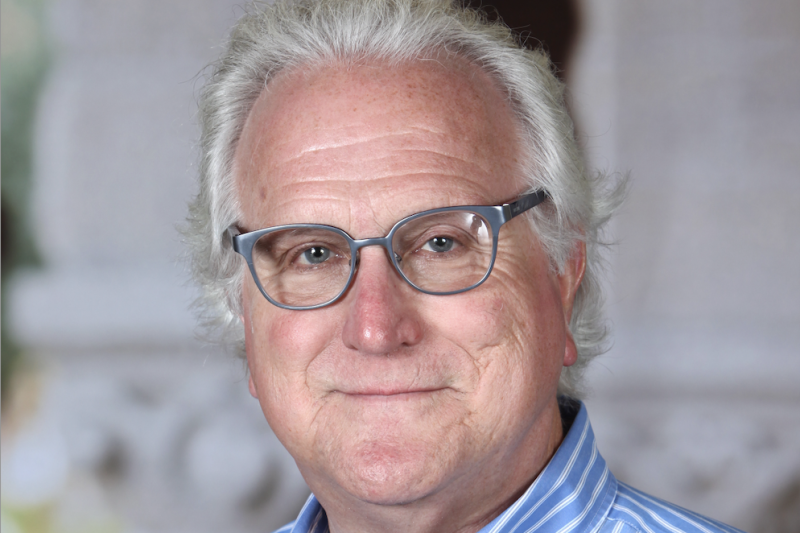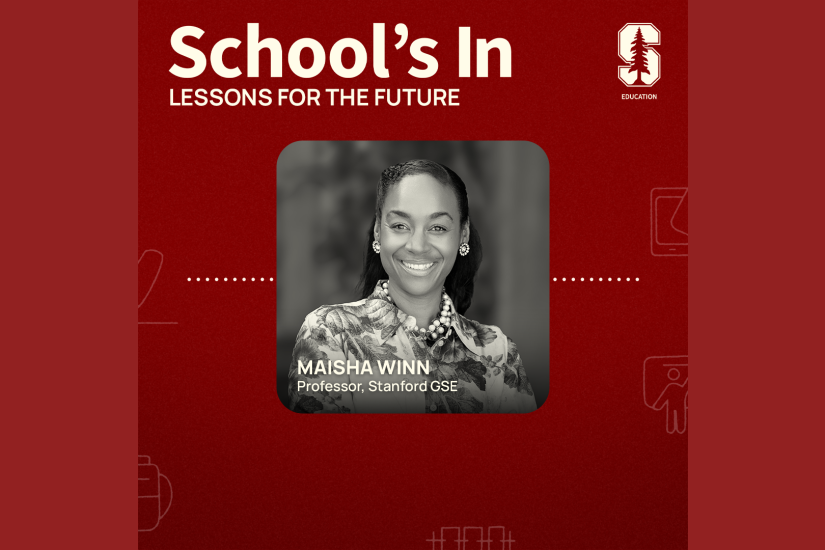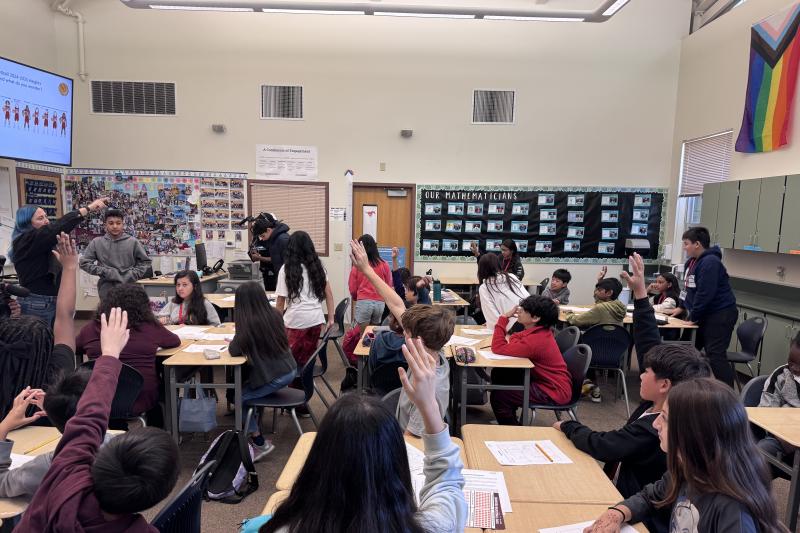
Education school holds in-person ceremony for 3 class years, celebrates transformative time in learning
It was time to come together.
For the first time since COVID-19 restrictions halted many activities two years ago, Stanford Graduate School of Education celebrated three graduating classes on Sunday, June 12, with an in-person diploma ceremony.
The pomp of the ceremony that brought together the classes of 2020, 2021 and 2022 was punctuated by a theme of responsibility. Now, declared Dean Dan Schwartz, was a unique moment in education to make transformative change.
“We’ve all felt our own slow motion frustration and powerlessness in the face of Covid, racism, gun violence and political chaos,” Schwartz said. But “people, not just us, are coming to recognize that we can only thrive if we play the long game, and the long game is education. As educators, we can uniquely help people learn about difficult histories, learn how to separate fact from fiction, learn about our communities and our responsibilities, and learn how to talk to one another.”
Schwartz said three game changers are helping propel this moment: new research methods, more data, and advancements in technology. Renewed public attention on schools and learning (mostly because of the impacts of Covid) also give a strong mandate to come up with better learning solutions, he said.
“Improving education is a public service. It can feel like a Sisyphean service, pushing the rock up the hill only to have it roll back down,” Schwartz said. “Right now we are at a place where we can push the rock to a new plateau so when it rolls back, it will still be higher than before.”
Schwartz reminded students and families that learning is one of “the single most important levers available for improving the human condition.”
“Education is not only an investment by parents. It is an investment by society for society,” he said.
‘What part will you play?’
Professor Emerita Arnetha Ball, who delivered the commencement address, recognized the turbulent circumstances of these graduates but told them she had confidence in their abilities.
“You’ve endured long nights of studying. You’ve met some seemingly impossible deadlines and you’ve weathered many storms. You’ve weathered cultural and political divides and you’ve endured a world-wide pandemic,” Ball said. “You’ve witnessed a nation that isn’t quite broken but certainly it is unfinished, particularly within the field of education.”
Ball said she believed the graduates were prepared – and willing – to make a difference in education, citing several GSE alumni who came before them and have used their time since graduating to address big challenges in the world.
“They saw something that was needed, something that did not exist, and so they created it.”
She mentioned, for example, Piya Sorcar MA ‘06, PhD ‘09, who developed culturally sensitive software to educate about HIV/AIDS and Carla Pugh PhD ‘01, who created innovative simulation devices that have transformed how physicians learn to become doctors.
She also singled out Salina Gray PhD ‘14, who teaches 7th grade science and created the (W)holistic Science Pedagogy that focuses on the social-emotional needs of her students and frames curriculum through a lens of social justice. She noted, as well, Claudio Sassaki, MA/MBA ‘03, who founded a company in Brazil to develop an adaptive learning platform that delivers customized learning plans to over 5 million students. And finally, Ball recalled alumna Gloria Ladson-Billings PhD ‘84, a groundbreaking education scholar and researcher.
“You come from good stock!” Ball told the graduates. “They too have graduated from this great institution and we are elated that you are sitting in those seats today.”
Ball asked the classes, “Given the knowledge, the understanding, and the wisdom that you’ve gained here at Stanford, what will you do with it? What part will you play in finishing the unfinished work facing education in this nation and in the world?”
Ball, an expert in urban education, language, and race, encouraged the students to be good stewards and mentors. She told them to dream audaciously and have a vision that is generative. She also encouraged the graduates to be rebellious – interrupting biases and objecting to practices and policies that disempower students, parents, and communities. And finally, she asked that the graduates face the future with tenacity, “because the challenges facing education and our society today will not be addressed sufficiently through mediocracy.”
‘Celebrate good times’
This year, the GSE conferred 20 doctoral degrees and 121 master's degrees in programs ranging from teacher preparation and international education to policy and leadership studies, as well as joint degrees with law, business and public administration. Twenty-nine Stanford undergraduates also were recognized at a ceremony on Friday for completing a minor in education or honor's thesis.
The classes of 2020 and 2021 were previously honored in online ceremonies (and awarded their degrees) but many came back to walk across the stage, take pictures with faculty, and revel in the community celebration.
At the end of the ceremony, after Associate Dean John Willinsky had read the 213 names – the attendees from 2020, 2021, and today – there was long applause and cheers: An exuberant exhale that ended a difficult period of meeting new classmates in masks, doing exams over Zoom, and generally not knowing what would come next.
Students stood, clapped, cheered, hugged, and danced as they left their seats and exited the sprawling tent for refreshments and selfies. Kool and the Gang’s “Celebration” blared through the speakers. “Let’s all celebrate and have a good time. … It’s time to come together!”
And, joyously, they did.



